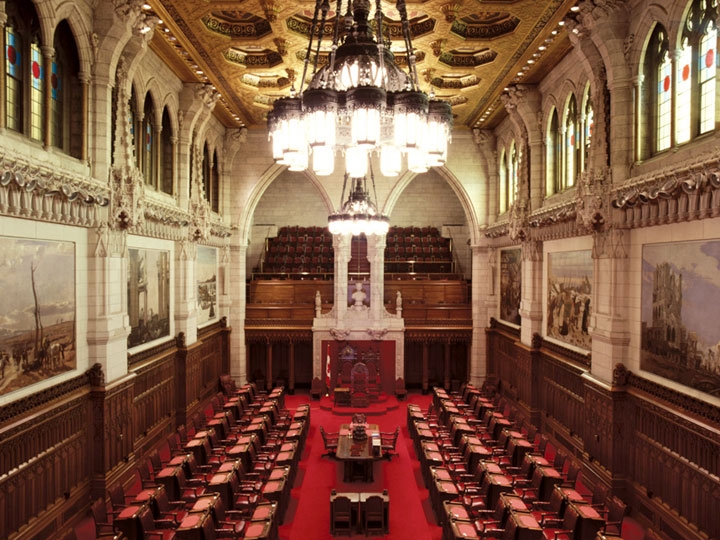If you’ve been hiding under a rock over the last few months, you may not know that the Senate of Canada has greatly increased its profile – and not in a good way. This should concern all of us, as everyone piles on with knee-jerk abandon to demand outright abolition of the Upper Chamber of our Parliament. Throwing the baby out with the bathwater is rarely the right approach to institutional reform.
The sudden attention to the Senate has provoked many objections to its continuation in its present form. Here are the most common and/or prominent of these objections:
Public Objection # 1: “The Senate is unelected”
That’s true, as it is in the U.K., where the House of Lords has been reformed from an inherited distinction to a more merit-based system. People like composer Andrew Lloyd Weber, architect Norman Foster, leading bishops and a rabbi, novelist P.D. James and academics such as Hugh Thomas and Asa Briggs, as well as distinguished historians, scientists and lawyers now sit in the House of Lords. It is highly unlikely that these individuals would have sought elected office, but their mission is also to provide “sober second thought”. But as in so many things Canadian, our Senate is a hybrid of the British model and the American model. Like the U.S. model, it was originally designed to bring the provincial perspective to federal legislation.
Public Objection #2: “Senators enjoy too many privileges”
It is true that up until the recent spending scandals, there was little oversight of the Senate’s honour-based finance system. The actions of a few abusers has put an end to that, although it’s unlikely that the Senate will become as fully transparent as personal spending by public servants, which is posted on the web in great detail. It is likely, however, that Senators will be far more cautious about displaying the entitled behaviour that has brought down their colleagues, such as Mike Duffy, in recent months.
Objection #3: “Senators are paid too much”
Although Senate salaries are generous by working class standards, Senators argue that they are not competitive for executives and professionals. While making this argument Senators often fail to also mention that they continue to work in business or sit on boards, earning additional income. It is difficult to track their attendance, although not impossible, as Senator David Tkachuk, Chair of the Standing Committee on Internal Economy, Budgets and Administration explains in a recent response to the media. Senator Tkachuk is fighting a rear-guard action to rehabilitate the Senate’s tattered reputation.
Objection #4: “We don’t need the Senate”
Those who follow the federal legislative process closely disagree with this sentiment. They point to decades of valuable committee work by Senators such as Michael Kirby and Marjorie Lebreton on health care and David Croll on poverty and, along with Sharon Carstairs, on aging. One direct impact of Senator Croll’s work was the reduction of federal pension eligibility age from 70 to 65 and the creation of a guaranteed income supplement. A decision that the Harper government recently reversed and that CARP vocally and actively opposed through its “Hands Off OAS” campaign. As a result of the advocacy on that front, opposition campaigns have committed to reverse the OAS and GIS eligibility change should they form government after the next election – bringing the retirement age back down to 65 again. But lest we forget, retirement benefits were made available to those at age 65 rather than age 70, and the GIS created by senator David Croll who tolled away at this through the late 1960s until he won the battle in the 1970.
Recently, members of the Senate’s Conservative majority chose to vote against a bill that had passed in the House on the grounds that it constituted a gross invasion of privacy and was not in the public interest. It was a rare development, but one that showed “sober second thought” in action.


